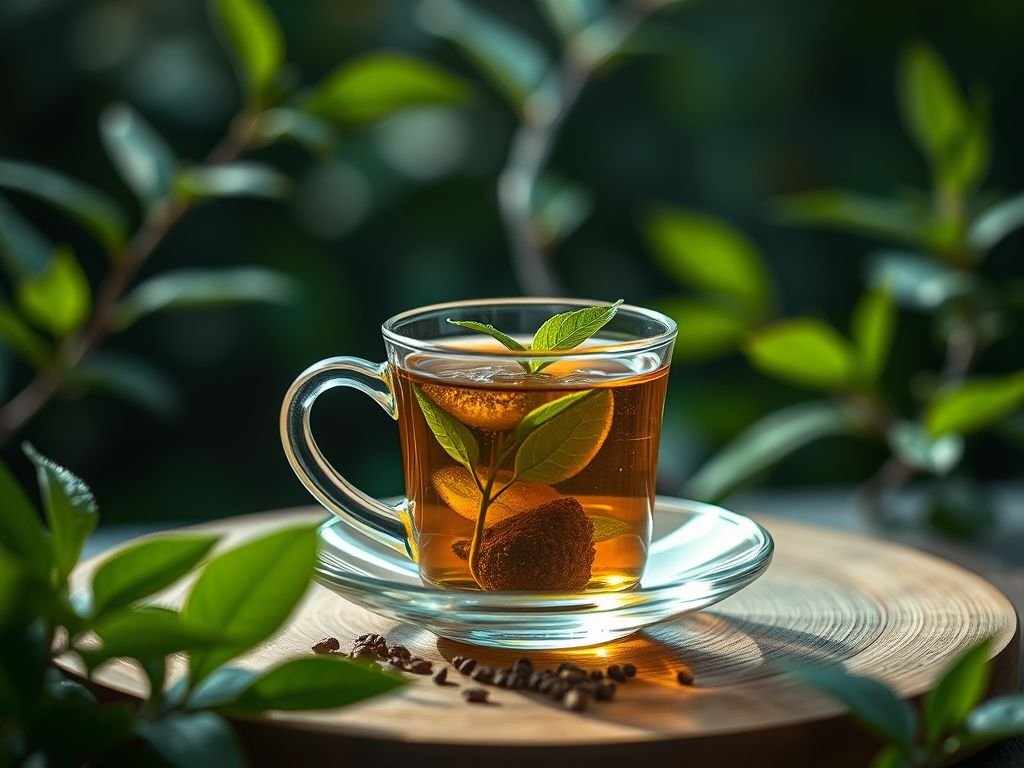Understanding Tea for Energy
Tea for energy refers to various types of tea that are specifically chosen for their ability to boost energy levels, enhance alertness, and improve overall vitality. These teas often contain natural ingredients that stimulate the body and mind, making them a popular choice among adults looking to combat fatigue, enhance focus, and maintain a healthy lifestyle.
Why Energy Matters
In today's fast-paced world, maintaining high energy levels is crucial for productivity and overall well-being. Fatigue can lead to decreased performance, mood swings, and even health issues. Incorporating energy-boosting teas into your daily routine can serve as a natural alternative to sugary or caffeinated beverages. These teas not only provide a gentle lift but also offer additional health benefits.
Types of Tea for Energy
There are several types of tea recognized for their energizing properties:
- Green Tea: Rich in antioxidants and containing caffeine, green tea enhances metabolism and provides a gentle energy boost without the jitters.
- Black Tea: With a higher caffeine content than green tea, black tea is ideal for those needing a more robust energy lift, improving focus and mental clarity.
- Yerba Mate: This South American tea is known for its unique combination of caffeine and theobromine, offering sustained energy and improved mental function.
- Ginseng Tea: Ginseng is renowned for its adaptogenic properties, helping the body adapt to stress and enhance energy levels.
- Matcha: A powdered form of green tea, matcha provides a concentrated dose of antioxidants and caffeine, perfect for a pre-workout boost.
How to Brew the Perfect Energy Tea
Brewing tea for energy is not just about steeping leaves; it's an art that can enhance the flavor and health benefits of your drink. Here’s a simple guide:
- Select Your Tea: Choose a variety of tea based on your energy needs (e.g., green for a gentle boost, black for a stronger effect).
- Use Fresh Ingredients: If using loose leaves, ensure they are fresh for optimal flavor and potency.
- Water Temperature: Different teas require different temperatures; generally, green tea needs cooler water (around 175°F), while black tea requires boiling water (around 212°F).
- Steeping Time: Follow recommended steeping times; typically, green tea takes 2-3 minutes, while black tea can steep for 3-5 minutes.
- Enhance Flavor: Add lemon, honey, or ginger to boost flavor and health benefits.
Practical Applications of Tea for Energy
Integrating tea for energy into your daily life can be simple and rewarding. Here are some practical applications:
- Morning Ritual: Start your day with a cup of green tea instead of coffee for a sustained energy boost.
- Pre-Workout Drink: Drink matcha or yerba mate before exercising to enhance performance and endurance.
- Afternoon Pick-Me-Up: Replace sugary snacks with black tea to avoid energy crashes later in the day.
Understanding tea for energy also connects with other concepts in natural health:
- Herbal Remedies: Other herbal remedies, such as adaptogens and superfoods, can complement your energy tea routine.
- Mindfulness and Hydration: Staying hydrated is essential for energy; consider herbal teas as part of your hydration strategy.
- Nutrition: A balanced diet enhances the effects of energizing teas.
Conclusion
Incorporating tea for energy into your lifestyle not only helps combat fatigue but also supports overall health and wellness. By choosing the right type of tea, brewing it properly, and applying it in your daily routine, you can experience significant benefits. So, why not start today? Experiment with different types of energizing teas and find what works best for you!
Call to Action
Have you tried any energizing teas? Share your experiences and favorite blends in the comments below. Let's inspire each other to embrace healthier, more energetic lifestyles!

